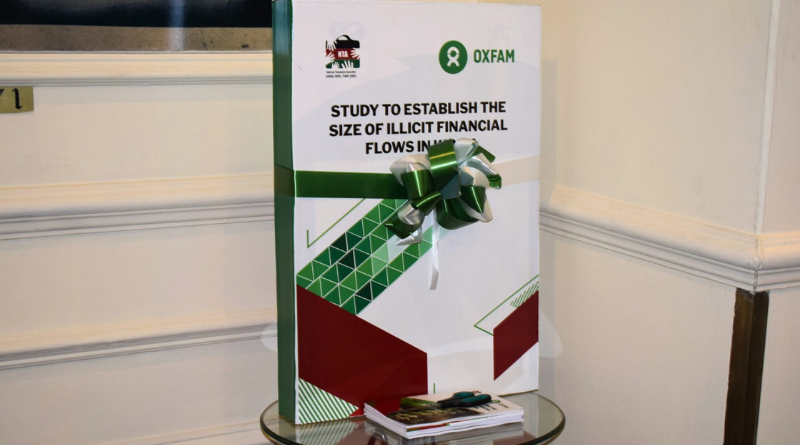Illicit Trade and Corruption Cost the Country KSh350 Billion Annually
By Chemtai Kirui, NAIROBI,
The nation is losing more than Sh350 billion every year through corruption, counterfeit goods and illicit financial flows, according to a new report by the National Taxpayers Association (NTA) and Oxfam Kenya.
The study estimates that corruption, bribery and criminal activities drain Sh253 billion annually, while counterfeit trade wipes out another Sh100 billion in lost taxes and jobs.
The report says that trade mis-invoicing, where businesses deliberately falsify the value of imports and exports, is a major driver of revenue loss.

The report shows that from 2013 to 2025, trade mis-invoicing widened the gap between Kenya’s official import figures and those of its trading partners to Sh18 trillion. Annual losses linked to this practice surged from just Sh1 billion in 2016 to Sh180 billion in 2025.
“These gaps are widening, and this should be a concern for the country’s fiscal health. Unless addressed, these practices will continue undermining economic growth and fair competition,” said Saidimu Terra Leseeto, Senior Advisor for Tax and Fiscal Affairs in the Office of the President.
The Anti-Counterfeit Authority (ACA) has separately estimated that one in every five products sold in the country is fake, ranging from pharmaceuticals to spare parts, textiles, alcohol and cigarettes, adding that the influx of counterfeit goods is costing billions in lost tax revenues and displacing legitimate businesses.
The nation’s vulnerabilities have also attracted international concern, with Kenya re-listed by the Financial Action Task Force (FATF) on its gray list for weak anti-money laundering controls.
Neighboring states including Uganda, Tanzania and Rwanda have since exited the list after tightening their regimes, raising pressure on Nairobi to follow suit.
The report cautions that unchecked losses are weakening fiscal stability, worsening poverty and deepening inequality. It recommends a review of the government’s tax exemption regime, stronger customs and investigative capacity, and regional cooperation to stem illicit flows.

Officials at the Kenya Revenue Authority (KRA) acknowledged gaps in enforcement.
“We have been doing our bit in combating illicit financial flows and ensuring compliance, but this research points to areas where we need to go back to the drawing board to address the fiscal deficit,” a KRA official said.
Analysts note that if the estimated losses were recovered, the funds could nearly double allocations for health, sustain free secondary education, and bridge gaps in critical infrastructure and social protection.
“The fight against illicit trade is about protecting jobs, revenues and fairness in the economy,” NTA said, urging urgent reforms to close revenue leakages.



